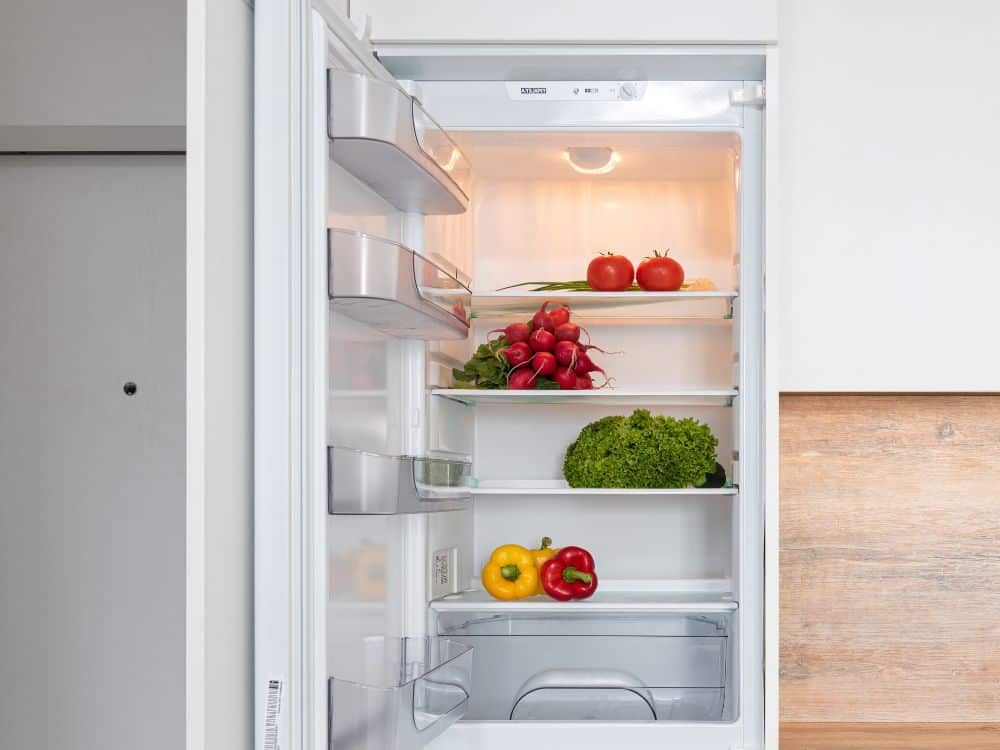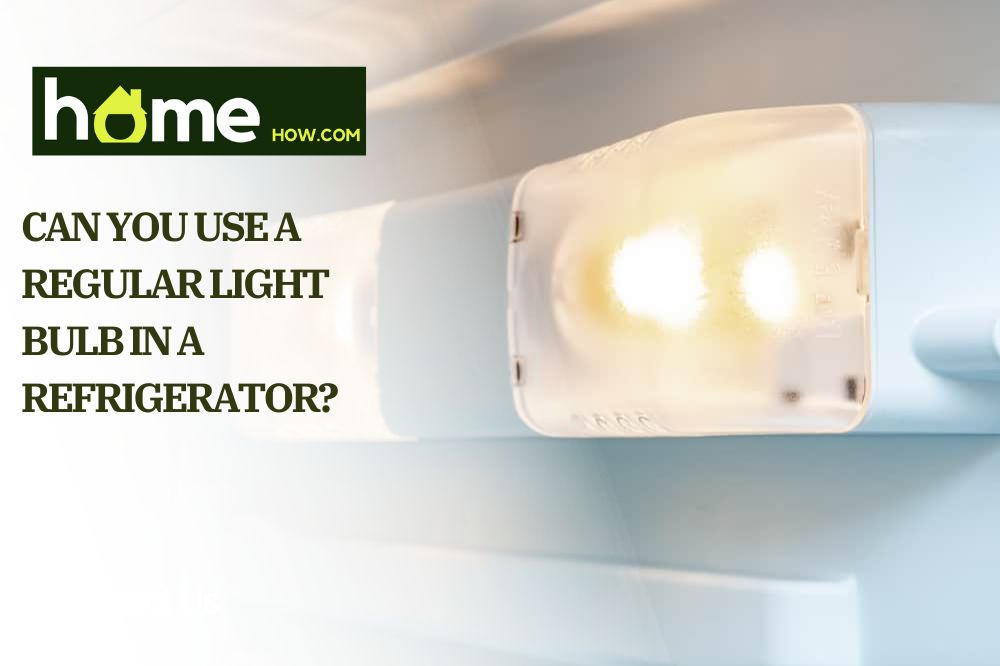Did you open your refrigerator, only to find that the light bulb inside has burnt out, casting the contents into darkness? You scour your pantry for a replacement, and you see a spare light bulb that you have lying around.
Can you use this regular light bulb in the refrigerator? Before you make the switch, consider the unique demands that come with illuminating this appliance. Unlike any other light bulb in your home, the refrigerator bulb must be able to handle extreme temperature changes, resist moisture and provide sufficient illumination, all while ensuring safety, so read on to find out more.
Can you use a regular light bulb in the refrigerator?
You may have thought to use a normal light bulb in your refrigerator because they are simpler to find and are less expensive. However, there are better ideas than using a regular light bulb in the fridge, which is why it’s important to find something that is specifically designed for use in cold temperatures.
The main difference between a standard bulb and an appliance bulb is its design and intended use. While a standard bulb is intended for general lighting in living spaces, it’s not equipped to handle the temperature fluctuations and moisture levels found in a fridge. A regular bulb can generate too much heat, which can adversely affect the efficiency and performance of your fridge.
A refrigerator bulb works differently than a regular bulb, as the filament in a traditional bulb is not designed to resist the temperature changes from inside a refrigerator. The filament in a standard bulb is made to burn bright, but when you expose it to extreme temperature changes and moisture, it can quickly burn out or even break, which will put you in danger. So, it is wise to not use a regular light bulb in the refrigerator.
How does a refrigerator bulb work?
The concept behind a refrigerator bulb is the same as any other incandescent bulb. A filament, which is the small wire inside, gets heated to a very high temperature by an electrical current. The bulb’s structure distributes the light that is released when the filament warms up throughout the refrigerator’s interior.
The only difference is the filament and other components of the fridge bulb are made from materials that are more resistant to temperature fluctuations and moisture than those used in a regular bulb.
Why you should use a specialized refrigerator bulb
Using a specialized refrigerator bulb in your fridge can offer several benefits that make it a worthwhile investment. Unlike a regular light bulb, which is meant for standard living spaces, a refrigerator bulb is designed to handle the extreme temperature changes that are typical in refrigerators. This means you can trust that the bulb will perform well, even in tough conditions, and have it work for a long time.
- Firstly, a refrigerator bulb emits less heat, which can be advantageous for your fridge, as excessive heat generation can lead to decreased efficiency and overall performance.
- By selecting a specialized bulb that is designed to emit less heat, you can help your fridge run at its best, which also results in long-term energy savings.
- Moreover, a specialized refrigerator bulb is typically more durable than a regular bulb. Because it is constructed to withstand the lower temperatures found inside a fridge, a refrigerator bulb is less likely to burn out or break. This increased durability can translate to a longer-lasting and more reliable bulb, which can save you money on replacements and reduce the risk of potential hazards.
How to choose the correct refrigerator bulb

Now that you have decided to get a specialized bulb, you need to find out which type you need, because there are different types you can choose from. Here are a few factors to consider when selecting refrigerator light bulbs:
- Type of bulb: A specialized refrigerator bulb is designed to work perfectly even in the extreme temperature changes that happen inside your fridge, making it a safer and overall better option than a regular bulb.
- Wattage: Opt for a bulb with a wattage that falls within the manufacturer’s recommended range for the specific fridge that you have. High-wattage bulbs can generate too much heat and affect your fridge, while bulbs with lower watts may not provide enough lighting. The most common type of bulb in a fridge is the 40-watt bulb, while most microwaves usually use the 25-watt led bulb.
- Size and layout of your fridge: If you have a larger fridge, it will generally need higher wattage bulbs to get the best lighting, while smaller fridges may be well-lit with only a lower wattage bulb. Check the manual of your fridge and consider the size and layout when selecting a bulb.
- Energy efficiency: Some specialized refrigerator bulbs are designed to emit brighter light while using less wattage, which can help to balance your lighting needs with energy efficiency. When selecting one of these bulbs, check that it is still appropriate for your fridge size.
By considering these factors and selecting a bulb that is appropriate for your home appliances, you can enjoy reliable, efficient lighting without putting your fridge or food at risk.
Conclusion
In conclusion, whether you’re storing your favorite drinks or whipping up some tasty meals, a refrigerator bulb is essential for keeping things bright and fresh inside your fridge. Just remember, when choosing a bulb, don’t be fooled by the regular light bulbs that can’t handle the temperatures. Instead, opt for a specialized refrigerator bulb that’s ready to handle the coolest of conditions.
If you have any questions about why you can’t use a regular light bulb in your refrigerator, leave a comment below. We would love to hear from you and help you out.
